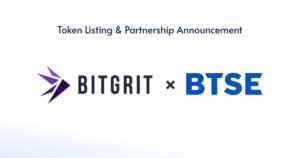 South Korea Excludes Crypto Exchanges from Venture Firm Certification, Tax Rate Increases 100 Percent
South Korea Excludes Crypto Exchanges from Venture Firm Certification, Tax Rate Increases 100 Percent South Korea Excludes Crypto Exchanges from Venture Firm Certification, Tax Rate Increases 100 Percent

Photo by Alex Knight on Unsplash
Cryptocurrency exchanges in South Korea faced the dreaded government hammer last week, as the authorities decided to exclude the burgeoning business type from the country’s “Venture Company” certification, reported Business Korea on Oct.1.
The certification provides small and medium businesses with tax breaks, relaxed government policies, and privileged support for raising funds and acquiring lines of credits. Millions of companies in the country have enjoyed the myriad benefits of the act, and while South Korea looks to relax norms for cryptocurrency businesses, the recent move is limiting in nature.
Cryptocurrency exchanges will now face a 100 percent increase in income and corporate tax–up from 12.5 percent to 25 percent–and cannot benefit from more than a 75 percent cut in acquisition tax. Moreover, credit guarantees offered by national banks will now disappear.

The development was brought into effect immediately upon announcement on Oct. 1. All existing exchanges holding the certificate–such as Bithumb, UPBit, and Coinone–cannot reapply for the certification after expiry. For most, the licenses are valid until the end of 2018.
Meanwhile, cryptocurrency exchanges are understandably opposed to the development. The lack of an issued certification implies an increase in operational costs and difficult while seeking international investments–which usually start in the millions of dollars.
An unnamed industry source told Business Korea:
“The measure implies that the government is regarding not only cryptocurrency exchanges but also every blockchain-related venture firm and business as gambling.”
The source added that South Korea’s willingness to lead the blockchain technology industry is severely hampered with the move, as local competitiveness is affected and players may relocate to crypto-friendly nations like Singapore and Malta.
Ample evidence from the past proves the move is detrimental for businesses. Last decade, South Korea excluded gaming companies from the certification and instilled a “shutdown law” in place after the industry showed a period of rapid growth and accounted for most of its digital exports. The move forbade people below 16 from accessing online games for six hours each day.
The move meant Chinese gaming companies attracted both user and developer talent to their offices, and over time, overtook the lucrative South Korean gaming market. With this in mind, it remains to be seen if the latter’s blockchain industry meets with a similar plight.



 Farside Investors
Farside Investors 





















































































